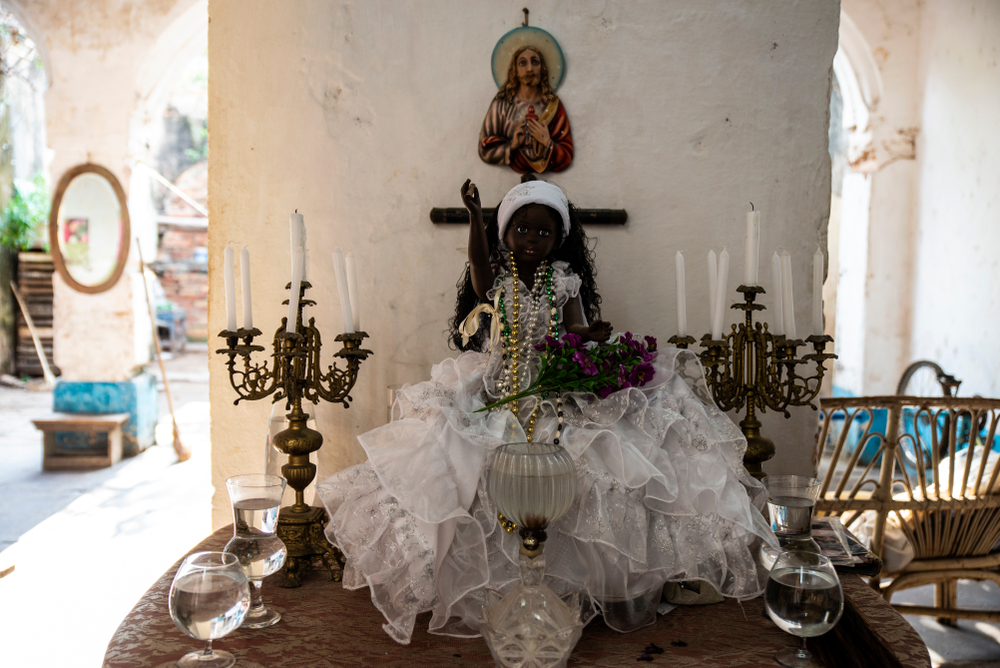
To many people, the word “hoodoo” is often seen as a synonym for Haitian Vodou. Sometimes the term is used in a pejorative manner. Other times, it’s used as a catchall phrase for religions that descend from West African spiritual practices, including Vodou and Santeria. The reality is that hoodoo refers to a spirituality with a distinct history. It includes a specific set of practices, originating with African Americans. Here are some things to understand.
What Exactly Is Hoodoo?
Hoodoo, also known as root work or conjure, began with African Americans. It originated with enslaved Africans and was adapted from various spiritual traditions. Those who practice it work with a number of items, including roots, herbs, candles, and curios. Unlike Vodou, it is not a specific religion with deities to be worshipped or religious leaders who are ordained to perform specific rites or duties. Hoodoo followers believe in spirits, but there isn’t a specific god or pantheon to be worshipped.
Who Can Practice Hoodoo?
Hoodoo is widely believed to be something that only can be practiced by Black people. Enslaved Africans created it to protect themselves from various traumas endured during the transatlantic slave trade. Practicing hoodoo requires engagement with its history, which includes calling upon the ancestors of the enslaved to execute various types of root work and conjuration. The spread of these practices corresponded to the Great Migration, in which many African Americans moved from the South to other parts of the United States.
What Are Some Practices?
Hoodoo involves traditional practices related to the supernatural:
- Divination: There are a number of forms of divination that Hoodoo adherents practice regularly:
- Astrology – Study of the motion and position of celestial bodies that are believed to control and influence nature and the affairs of mankind
- Augury – Interpretation or deciphering of omens that portend the future
- Cartomancy – Interpretation of the reading of cards
- Cleromancy – Casting of small objects such as shells, bones, and sticks
- Oneiromancy – Interpretation and analysis of dreams
- Spirit Mediation: Those who practice hoodoo believe that supernatural powers can be accessed to improve their lives. An important aspect of this belief system is conjuring dead spirits and contacting the ancestors for guidance and positive outcomes.
What Faiths Have Influenced Hoodoo?
Vodou: Following the Haitian Revolution, many Haitians emigrated to Louisiana, where there was a strong French influence. Conjure rituals that were a part of Haitian Vodou were adapted and modified by enslaved Black people along the coastal United States.
Christianity: The presence of Christianity was strong among enslaved populations as many slave owners sought to convert them. Many Biblical figures, particularly the likes of Moses and David, were recast as hoodoo practitioners. Although hoodoo doesn’t typically involve deity worship, the idea of a God who provides and restores with justice resonated with African Americans. The Bible is considered by many adherents to be a source of spells, particularly the book of Psalms. The Bible itself is also considered a talisman that offers protection.
Native American religions: Hoodoo adopted the idea of connecting to ancestors and the spirit realm from indigenous people. Some practices such as smudging a room with smoke from burning sage to cleanse it of evil spirits descended from indigenous faiths.
The next time you hear someone use the term “hoodoo,” listen for context. You have the opportunity to correct them if the word is being used as a synonym for vodou or in some other disparaging manner. Hoodoo refers to a specific set of spiritual practices but not a religion with a unifying doctrine, churches or ordained ministers. In fact, many adherents also consider themselves to be members of faiths such as Christianity and African religions.

